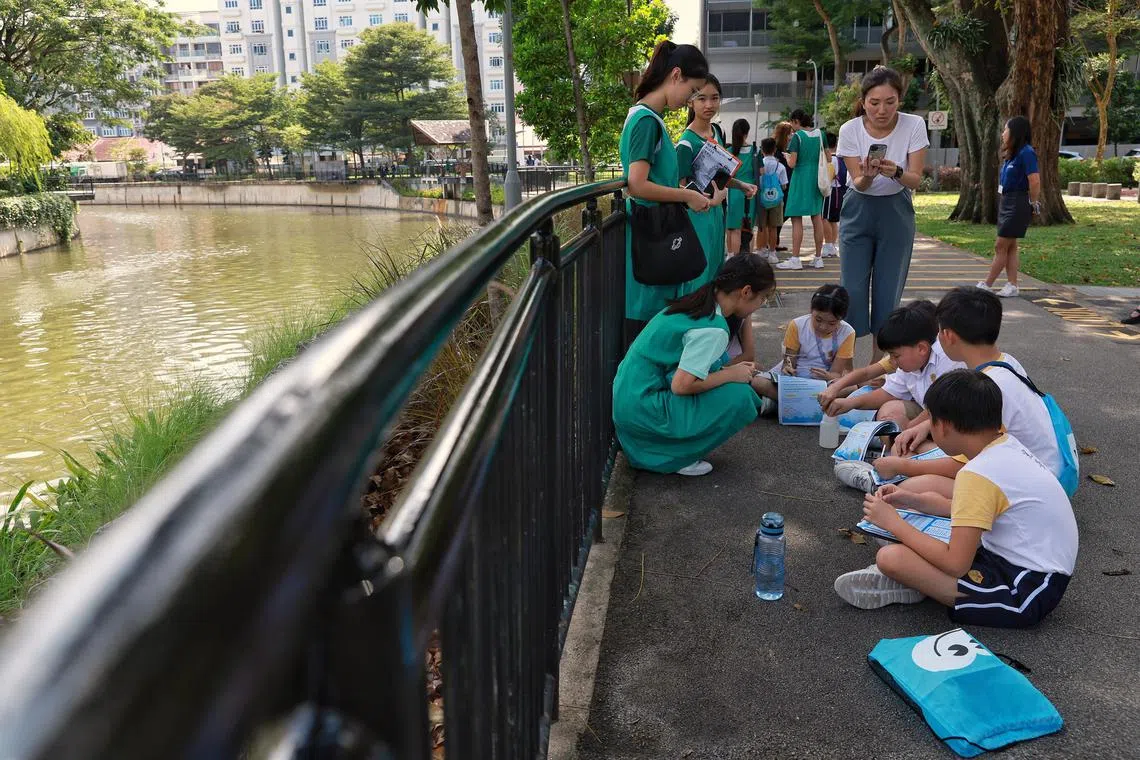Ministries’ work ahead: Supporting learners at all stages of life, uplifting those in need
Sign up now: Get ST's newsletters delivered to your inbox

Education Minister Chan Chun Sing said one key focus will be technology, which will be tapped to customise teaching and learning for students of different abilities.
ST PHOTO: KEVIN LIM
Follow topic:
SINGAPORE – Adult learners will be given more opportunities for training and learning in their lifetime, as the Ministry of Education (MOE) ramps up efforts to help Singaporeans stay competitive in a changing global landscape.
Plans to strengthen Singapore’s SkillsFuture movement include making training more accessible for adults, developing new ways of teaching such learners and working closely with companies, unions and training institutions to tighten the nexus between business needs and workers’ skills and training.
The MOE will also provide stronger support for mid-career workers to reduce their opportunity cost for training, said Education Minister Chan Chun Sing on Tuesday in his ministry’s addendum to the President’s Address.
Outlining MOE’s key priorities, he said it will strengthen support for students with special educational needs in both mainstream and special education (Sped) schools. It will work with social service agencies to improve remuneration and career progression in the Sped sector, to raise the quality of Sped and enable students to lead independent and meaningful lives.
Another key focus is technology, which will be tapped to customise teaching and learning for students of different abilities, he added. “For example, adaptive learning platforms, powered by artificial intelligence, will allow more advanced learners to stretch themselves, while freeing up time for our teachers to focus on students with greater learning needs.”
“We have moved away from a one-size-fits-all approach to education, and from using a single metric to evaluate the diverse dimensions of our students’ abilities,” said Mr Chan, citing initiatives like full subject-based banding, and expanding admission routes to schools and institutes of higher learning in recognition of students’ different strengths.
Efforts will also be stepped up for learners from different backgrounds to interact with each other, and MOE will continue to invest more in pre-school education, especially for children from disadvantaged families, he added.
Supporting families
These efforts will be complemented by the work of the Ministry of Social and Family Development (MSF) to help those in need and build an inclusive society.
Minister for Social and Family Development Masagos Zulkifli said it will implement the Singapore Made For Families 2025 plan,
Families will have easier access to peer support groups, marriage preparation, parenting and grandparenting programmes at the community level, with the Families For Life movement set up in all towns by 2025 in partnership with family service centres (FSCs).
Those facing more challenges will have marriage and divorce support, and family counselling, through the nationwide network of 10 FSCs offering the Strengthening Families Programme, said Mr Masagos.
On top of ensuring children have access to quality and affordable pre-schools, he said the MSF will study new care options apart from infant care facilities, to meet varying preferences and needs.
Pre-schools will be made more inclusive and capacity in early intervention services expanded to support children with developmental needs, he added. SG Enable will launch regional hubs to provide employment support and bring social support services closer to persons with disabilities and their caregivers.
Mr Masagos also outlined efforts to uplift lower-income families and help at-risk individuals. This includes closing the gap in pre-school participation rates of children from lower-income families with their peers and regularly updating ComCare to reflect basic expenditure patterns of lower-income families.
“We will also ensure that social services are comprehensive, convenient, and coordinated so that vulnerable families can get the help they need quickly and easily,” he said.
Equipping workers
On the job front, more will be done to expand opportunities for Singaporeans and strengthen support for vulnerable workers, said Manpower Minister Tan See Leng.
“Many are concerned about staying relevant and competitive, and having job opportunities that match their aspirations,” he said.
To this end, individuals can make use of Jobs Transformation Maps by the Ministry of Manpower (MOM) to gain insights on how technology will affect their jobs and proactive measures they can take, among other initiatives, to help them chart their career paths, said Dr Tan.
“For those inclined towards ‘hands-on’ work, MOM will work with NTUC to professionalise skilled trades, to attract and retain more Singaporeans in such jobs through better salaries and clearer progression ladders,” said Dr Tan.
“We have made headway in uplifting the image and attractiveness of skilled professions that work with the ‘heart’, such as nursing and early childhood education. We must do likewise for trades that emphasise craft and skills mastery.”
Another goal is to build a stronger local pipeline for corporate leadership positions, said Dr Tan.
Other areas of focus for MOM, he added, include helping lower-wage workers progress in their careers, as well as ensuring access to employment for groups like seniors, people with disabilities and ex-offenders.
The MOM is also undertaking a “fundamental review” of its policies for retirement adequacy, said Dr Tan.
“We will bolster retirement adequacy and make sure the Central Provident Fund (CPF) system continues to work for the broad majority of Singaporeans,” he said. “We will raise the CPF monthly salary ceiling to keep pace with rising incomes, which will help middle-income workers save more during their working years.
“Ultimately, we seek to assure all Singaporeans that as long as they work and contribute consistently to their CPF, they will be able to meet their basic retirement needs. We will also find ways to look after those who are unable to work consistently or who have a shorter runway of working years.”


